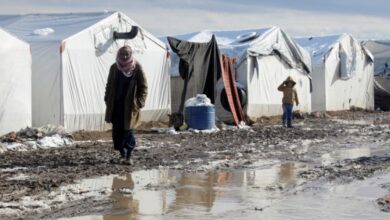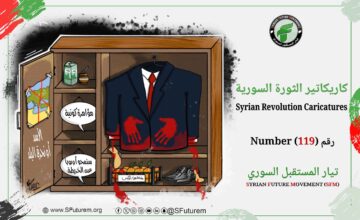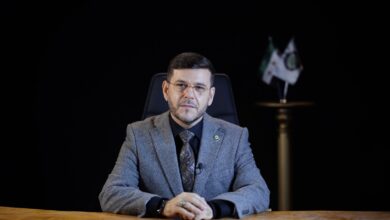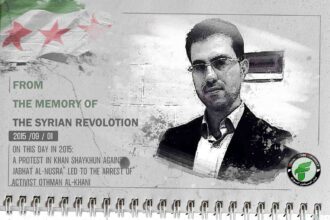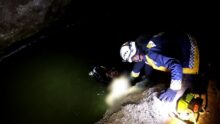Medal of the (SFM)Media Office
Honored by the Syrian Future Movement (SFM) No. (16) Abdel Qader Saleh “Hajji Mare”.

Abdel Qader Saleh “Hajji Mare”
- Abdel Qader Saleh, also known by Mahmoud, was affectionately nicknamed “Hajji Mare” by Syrians.
- He was born in the city of Mare in the Aleppo countryside in 1979.
- He engaged in religious advocacy in Syria, Jordan, Turkey, and Bangladesh after completing his military service in the chemical weapons unit. When he joined the revolution, he shaved his beard himself (to prevent the Syrian revolution from being mischaracterized as non-secular).
- A father to five children, he was involved in the grain and foodstuff trade.
- He played an active role in the Syrian revolution from its peaceful beginnings and was among the organizers of peaceful demonstrations.
- With the revolution turning to armed conflict in response to the violence of the Syrian regime, Hajji Mare joined the armed resistance.
- He founded a local battalion in the city of Mare to protect demonstrators from the regime’s snipers.
- He was instrumental in forming the first group of military battalions and was chosen as the operations commander in the “Liwa al-Tawhid” faction in the northern countryside of Aleppo.
- He sold most of his possessions to buy weapons for the fight against Syrian regime forces.
- Hajji Mare participated personally in many significant military battles, most notably for the control of Azaz, Al-Rai, and Jarabulus.
- His faction was the first to enter Aleppo city.
- In Aleppo, Hajji Mare was involved in numerous battles, including taking control of security centers in neighborhoods like Al-Nayrab, Al-Shaar, Hanano, Al-Salihin, the People’s Army headquarters, Hanano barracks, Al-Brei compound, the Infantry School, and the Kindi Hospital.
- Committed to the unity of Syrian territory, Hajji Mare also fought in major battles outside Aleppo, including supporting fighters in Al-Qusayr and leading battles in the Hama countryside.
- He worked towards unifying the factions, mediating between the Free Syrian Army and Salafi jihadist factions, and aimed to unite Islamic factions after the division caused by the Islamic State organization.
- Surviving several assassination attempts, the Syrian regime placed a $200,000 bounty for his capture or death.
- Hajji Mare was a firm believer in a non-sectarian Syrian revolution, advocating for a religiously moderate state, opposing the forceful establishment of an Islamic state, and frequently criticizing the international community’s lack of support for the Syrian revolution.
- Representing the revolt of the Syrian people against injustice and oppression, Hajji Mare symbolized the authentic and genuine spirit of the non-elite Syrian populace, which the Syrian regime sought to obliterate.
- He sustained severe injuries from a regime airstrike on a Liwa al-Tawhid leaders’ meeting and passed away on November 18, 2013, after being transferred to a hospital in Gaziantep. He was buried in Mare, in a grave he had prepared himself, fulfilling his last wish.
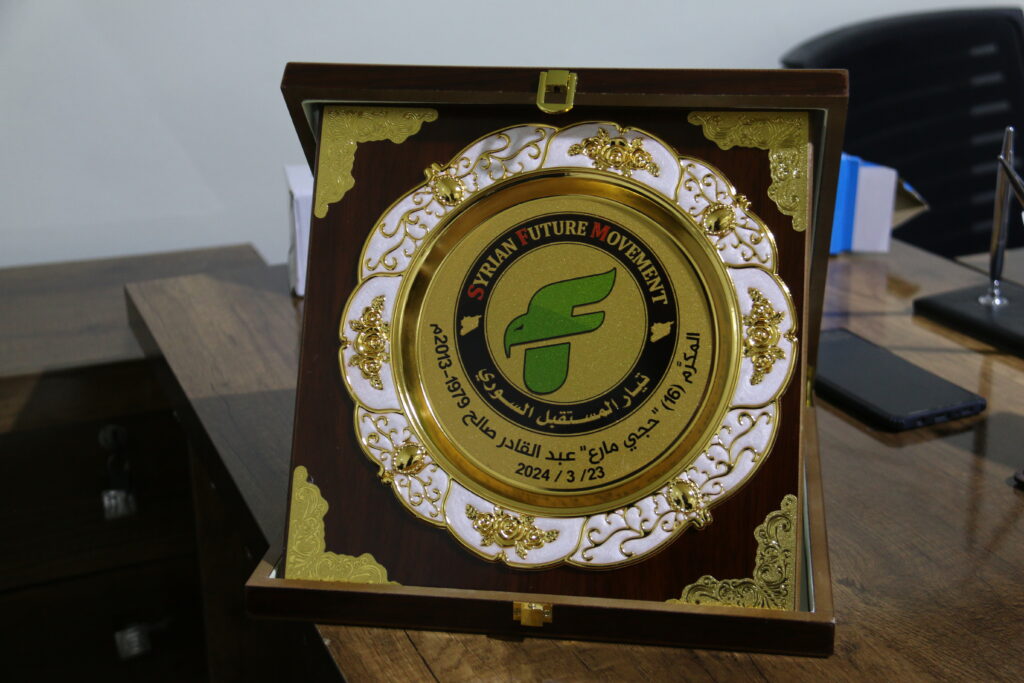
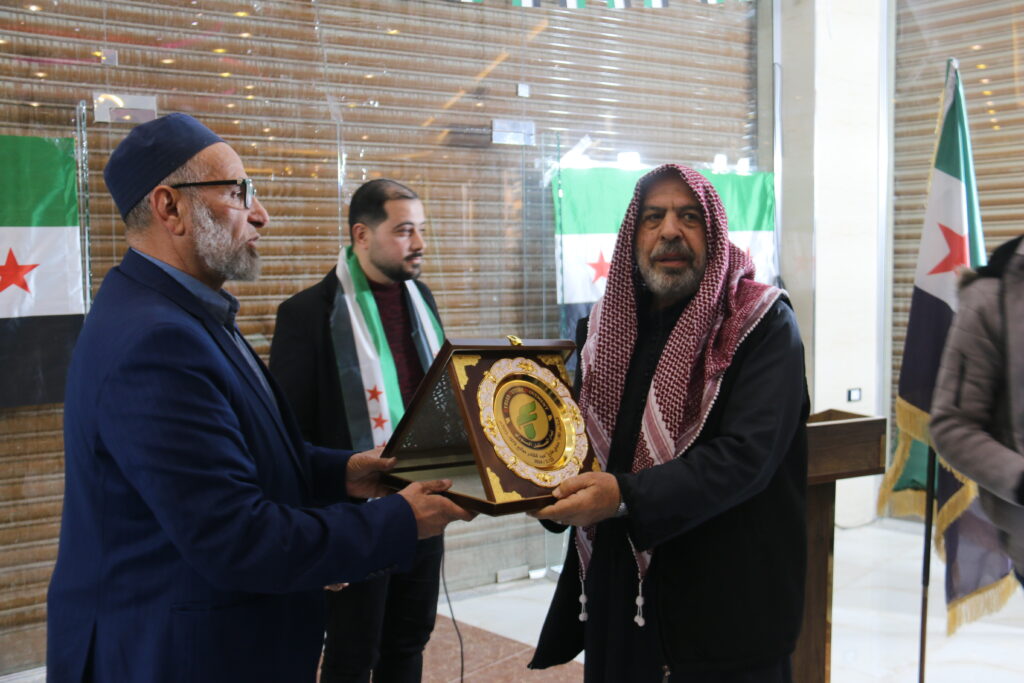
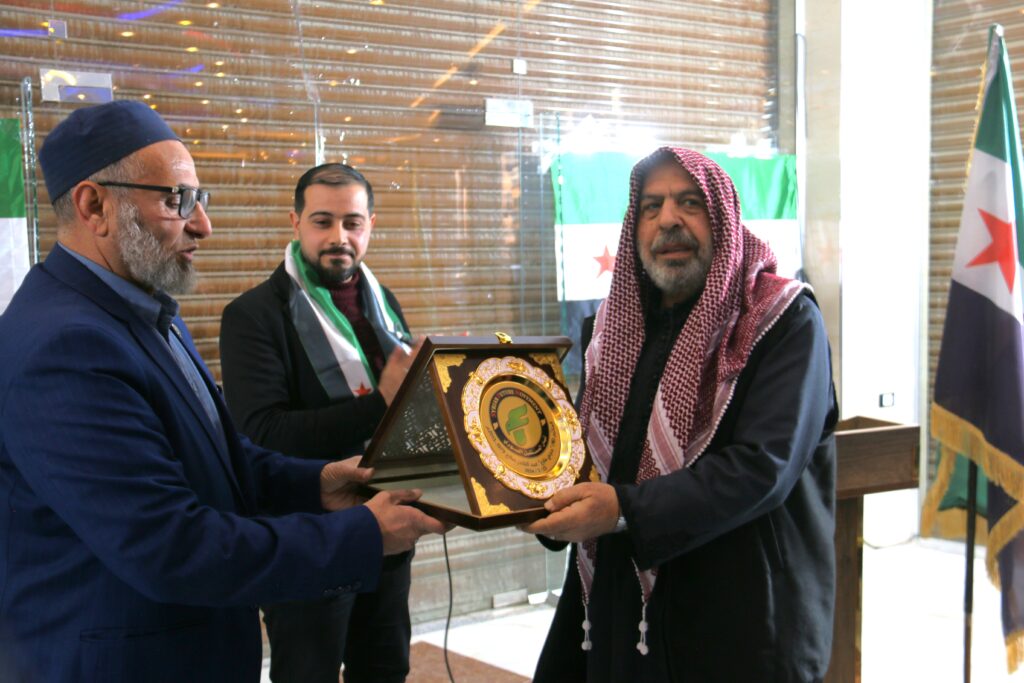
The Syrian Future Movement (SFM), acknowledging his significant contribution to the national history and despite being a civil movement, recognizes the importance of honoring those who stood with their people in their fight against tyranny and injustice. In appreciation of the Syrian leaders and free men, SFM proudly awards Abdel Qader Saleh “Hajji Mare” with this week’s Syrian Future Movement shield, a symbolic representation of our national, unifying vision.
